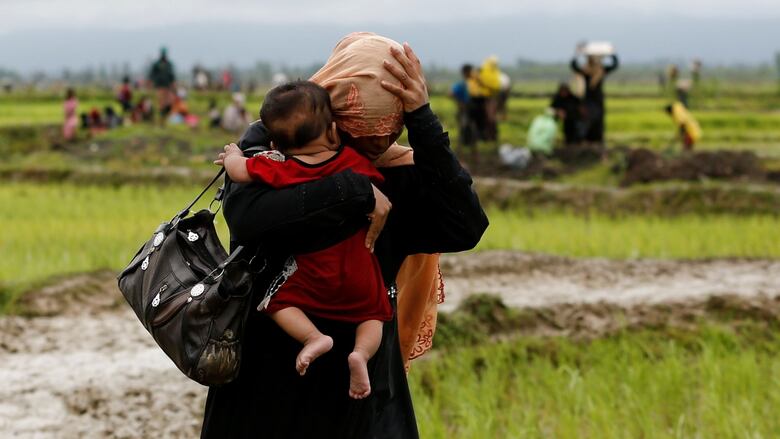Global refugee crisis can't be addressed without a serious 'paradigm shift': Lloyd Axworthy

The issue of human migration has become the political third rail of our time — an issue so toxic and so volatile it has swung elections and temporarily shut down the United States government.
And with the refugee crisis poised to dominate another year of headlines and influence domestic politics around the globe, it is difficult to feel hopeful.
Lloyd Axworthy has been searching for possible solutions.
He has held numerous cabinet positions as a federal Liberal politician, including Minister of Foreign Affairs and Minister of Employment and Immigration.
He is now chair of the World Refugee Council, a new international organization based in Waterloo, Ontario.

He says the refugee convention created after WWII, which was based on voluntary financial support, is not enough in today's world.
"We're in a paradigm shift. The old systems that were developed to manage global problems after the second World War are worn out."
Axworthy's counterparts on the World Refugee Council include the former president of Tanzania, an advocate at the Supreme Court of Pakistan and a former German federal minister.
Together, they are tasked with advancing a strategic vision for how the international community can respond to the refugee crisis.
Despite the focus on refugees in Europe and North America, UNHCR — the United Nations' refugee agency — has reported that 84% of refugees worldwide are hosted in developing countries.
"Many of these poor countries have been real heroes of our time," Axworthy says. "Uganda, which is not a top-of-the-run economic elite, has accepted over a million refugees from South Sudan."

Some countries, he says, are committing international crimes by sending refugees back to countries that aren't safe.
Axworthy also notes that some governments that say it's politically impossible for them to accept more refugees might be willing to provide healthcare, water or education to refugees in camps. But he cautions that such moves could run the risk of making the camps permanent.
One concrete policy solution for addressing the current crisis, Axworthy says, is unfreezing dictator assets to pay for refugee programs.
"There are billions of dollars sitting in the bank accounts of a bunch of bad guys, and the bad guys are the ones who caused the refugee problem," he adds.
To hear the full interview, click 'listen' above.